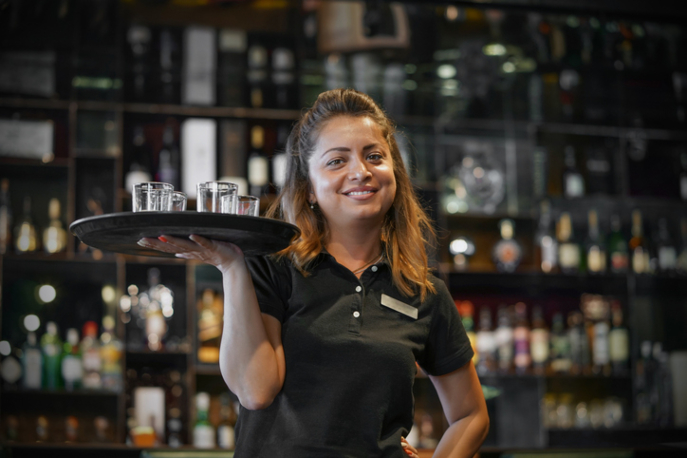The Equal Employment Opportunity Commission found that service-based workers, particularly restaurant industry workers, file more sexual harassment claims than all other sectors by a large margin. Furthermore, a 2021 survey conducted by Social Science Research Solutions found that, “Overall, 71% of women restaurant workers had been sexually harassed at least once during their time in the restaurant industry.”
The Coalition for Restaurant Safety and Health (CRSH) is a Philadelphia-based organization using organizing, grassroots education and worker empowerment to address harassment, violence and the other daily injustices faced by restaurant workers. RALIANCE is proud to call the organization one of our 2019 grantees to receive funding for their critical work through our partnership with the National Football League.
We recently spoke with CRSH’s cofounder and advisory board member, Nadia Hewka, about CRSH’s work addressing the unique challenges of workers in the hospitality industry and how the workers are becoming equipped to help change the culture.
RALIANCE: What are some of the sexual harassment challenges in Philadelphia?
CRSH: Restaurant culture can be very difficult to change because sexual harassment becomes normalized over time in many workplaces. Women, women of color and immigrant workers are most at risk of harassment and other workplace exploitation, yet are the least likely to feel empowered enough to speak up because they are often in the lowest and least paid positions in these workplaces.
Additionally, our legal system requires issues to be brought to management’s attention before a legal claim can be made, but many workers don’t know how to or whom to report and whether their report will be taken seriously.
Lastly, restaurant owners are focused on many other concerns besides harassment and overall culture – just in the last few years it’s been economic survival through the pandemic, reopening rules, supply chain challenges and more.
RALIANCE: CRSH received a RALIANCE grant in 2019, can you tell us about the type of work the grant supported?
CRSH: The RALIANCE grant came at a key time in our development when it became clear to us that we needed to engage directly with workers because they can pressure management regarding lack of protective workplace policies and lack of training on harassment.
Thanks to the grant, we developed an active workers committee, the work of which benefits the organization to this day. We developed a training program for the members of the workers committee; they then developed a report designed to learn from their peers about how sexual harassment impacts them at work and how they believe their workplaces could be made safer.
The report is here, #LeadByExample Report | crsh (saferestaurantsphilly.org).
RALIANCE funding also allowed us to fine tune our workplace trainings to be more focused on practical intervention techniques; the discussion of which really engaged workers and supervisors in conversation regarding past experiences.
RALIANCE: What are three tips you can give restaurant and business owners about preventing sexual harassment in the workplace?
CRSH:
-The tone is set from the top on respectful workplace culture, and you should want people to bring issues to your attention before they turn bad. The good news is you can always start fresh and announce an open-door policy no matter what practices have been in place in the past.
-We encourage restaurants to really listen to their workers regarding both problems and potential solutions. It’s easy these days to do a temperature check about your workplace culture and whether workers feel comfortable coming forward using online tools like anonymous surveys (and allowing for different languages to be used). The results can help you figure out what is and isn’t working so you can bring in help if needed.
-When there is a problem with a customer, workers need to know that managers will have their backs! Sexual harassment from a customer can put workers, particularly servers, in an awkward position as they rely on tips. But knowing a manager will step in if needed or support you if you cut someone off from alcohol, will set a tone that will translate to better workplace culture.
Our answer to these challenges is that harassment needs to be seen as a workplace rights issue that workers take on with bosses.
You can follow The Coalition for Restaurant Safety and Health on Twitter and Facebook.
RALIANCE is a trusted adviser for organizations committed to building cultures that are safe, equitable, and respectful. RALIANCE offers unparalleled expertise in serving survivors of sexual harassment, misconduct, and abuse which drives our mission to help organizations across sectors create inclusive environments for all. For more information, please visit www.RALIANCE.org.

